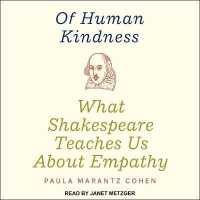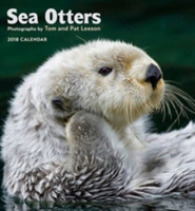- ホーム
- > 洋書
- > 英文書
- > Literary Criticism
Full Description
After the 1965 Immigration and Nationality Act loosened discriminatory restrictions, people from Northeast Asian countries such as South Korea, Taiwan, Japan, and eventually China immigrated to the United States in large numbers. Highly skilled Asian immigrants flocked to professional-managerial occupations, especially in science, technology, engineering, and math. Asian American literature is now overwhelmingly defined by this generation's children, who often struggled with parental and social expectations that they would pursue lucrative careers on their way to becoming writers.
Christopher T. Fan offers a new way to understand Asian American fiction through the lens of the class and race formations that shaped its authors both in the United States and in Northeast Asia. In readings of writers including Ted Chiang, Chang-rae Lee, Ken Liu, Ling Ma, Ruth Ozeki, Kathy Wang, and Charles Yu, he examines how Asian American fiction maps the immigrant narrative of intergenerational conflict onto the "two cultures" conflict between the arts and sciences. Fan argues that the self-consciousness found in these writers' works is a legacy of Japanese and American modernization projects that emphasized technical and scientific skills in service of rapid industrialization. He considers Asian American writers' attraction to science fiction, the figure of the engineer and notions of the "postracial," modernization theory and time travel, and what happens when the dream of a stable professional identity encounters the realities of deprofessionalization and proletarianization. Through a transnational and historical-materialist approach, this groundbreaking book illuminates what makes texts and authors "Asian American."
Contents
Introduction: Miracle Fiction?
1. Deep Conditions of the World: Modernization Theory and Transimperiality
2. Writing Like an Engineer: Postracial Form and Utopia
3. Shakespeare Words: Professional Identity and Literary Style
4. Genres of Deprofessionalization: Economic Subjectivity and Chinese American Women Writers
5. Enough? Semiperipheral Structures of Feeling in the Taiwanese American Novel
Conclusion: Asian Fetish
Acknowledgments
Notes
Bibliography
Index








